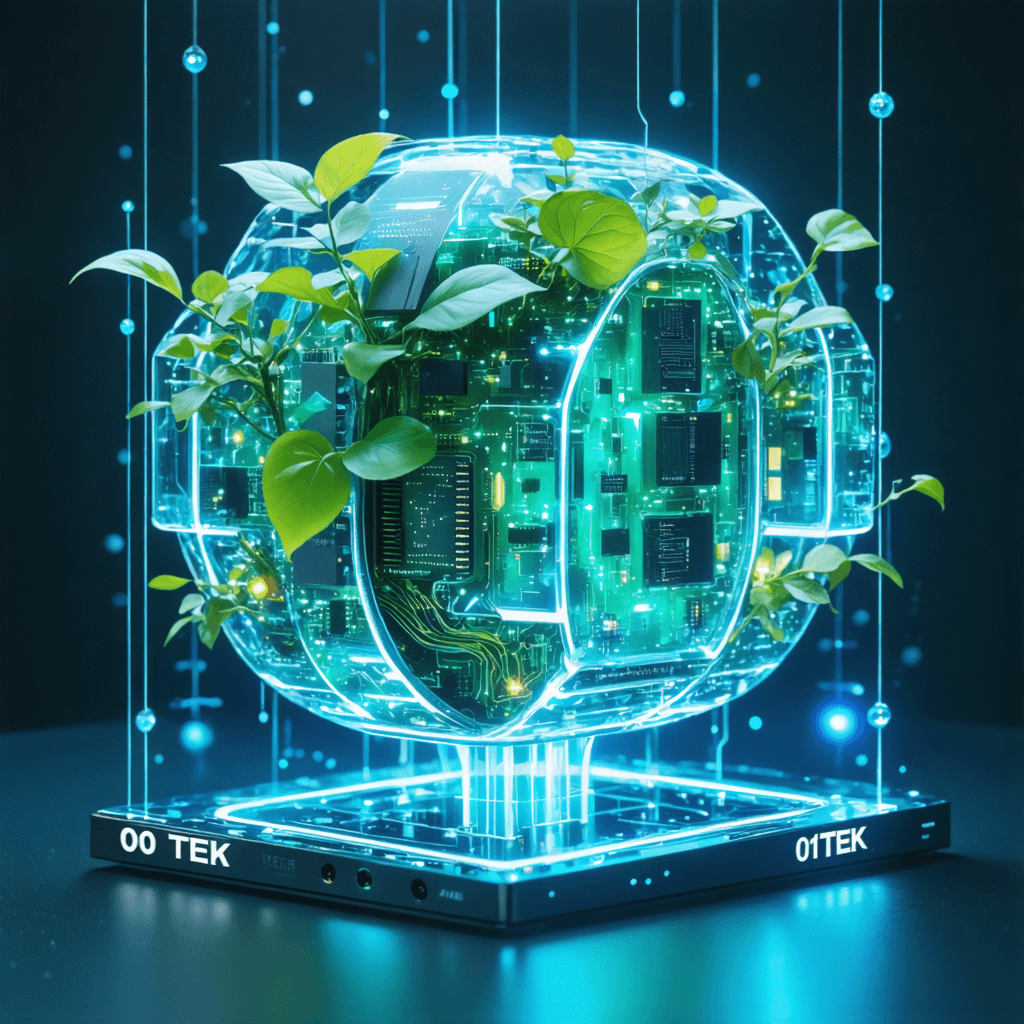AI Powerhouse Revolutionizes Global Sustainability Through Next-Gen Computing Breakthroughs
In recent years, artificial intelligence has emerged as a transformative force in addressing global sustainability challenges, marking a new era in environmental stewardship through advanced computing solutions. This revolutionary approach is reshaping how we tackle climate change, energy efficiency, and resource management while setting new standards for sustainable technological advancement.
The Convergence of AI and Sustainability
The integration of artificial intelligence with sustainability initiatives has created an unprecedented opportunity to address environmental challenges with unprecedented precision and efficiency. Leading research institutions and technology companies are leveraging AI-powered solutions to optimize energy consumption, reduce carbon emissions, and develop more sustainable practices across industries.

Breakthrough Technologies Driving Change
Advanced Computing Architecture
The latest developments in accelerated computing have revolutionized how we process and analyze environmental data. These systems can perform complex calculations while consuming significantly less energy than traditional computing methods. According to recent studies, GPU-accelerated computing can achieve up to 20 times better energy efficiency compared to conventional systems.
Smart Grid Optimization
AI-powered smart grids represent one of the most promising applications of this technology. These intelligent systems utilize machine learning algorithms to:
- Predict and balance energy demand
- Integrate renewable energy sources more effectively
- Reduce transmission losses
- Optimize power distribution in real-time
Digital Twin Technology

Environmental modeling has taken a quantum leap forward with the implementation of digital twin technology. These sophisticated virtual replicas enable researchers and engineers to:
- Simulate environmental impacts
- Test sustainable solutions
- Optimize resource utilization
- Predict and mitigate potential environmental risks
Impact on Global Sustainability Goals
Energy Efficiency in Data Centers
The growing demand for AI computing has led to innovative solutions in data center design and operation. Modern AI-powered data centers are implementing:
- Advanced cooling systems
- Dynamic workload management
- Renewable energy integration
- Smart power distribution networks
Climate Change Modeling and Prediction
AI systems are now capable of processing vast amounts of climate data to generate more accurate predictions and solutions. This capability enables:
- Better understanding of climate patterns
- More accurate weather forecasting
- Improved disaster prevention strategies
- Enhanced resource allocation for climate initiatives
Industry Applications and Success Stories
Manufacturing Sector
AI-driven manufacturing processes have demonstrated remarkable improvements in sustainability metrics:
- Reduced energy consumption by up to 30%
- Decreased material waste by 25%
- Optimized production schedules for maximum efficiency
- Improved quality control with minimal resource waste
Agriculture and Food Production
Smart farming solutions powered by AI are revolutionizing agricultural sustainability:
- Precise irrigation systems
- Optimal crop rotation planning
- Reduced pesticide use
- Improved yield predictions
Future Prospects and Developments
The future of AI in sustainability looks increasingly promising, with several key developments on the horizon:
- Enhanced machine learning algorithms for environmental protection
- Advanced sensor networks for real-time monitoring
- Improved energy storage solutions
- More efficient computing architectures
Challenges and Solutions
While the integration of AI in sustainability initiatives presents numerous opportunities, it also faces several challenges:
- Energy consumption of AI systems
- Data center carbon footprint
- Infrastructure requirements
- Technical expertise needs
However, innovative solutions are constantly being developed to address these challenges, including:
- More efficient AI algorithms
- Sustainable computing infrastructure
- Renewable energy integration
- Advanced cooling technologies
The Role of Education and Training
As we move forward, the importance of education and training in AI sustainability cannot be overstated. Organizations must invest in:
- Technical skill development
- Sustainability awareness programs
- Cross-disciplinary training
- Continuous learning initiatives
Call to Action
Ready to be part of the AI-driven sustainability revolution? Explore our comprehensive courses and resources at 01TEK to develop the skills needed for this exciting field. Join us in shaping a more sustainable future through the power of artificial intelligence.
Sources: [1] The Power of AI in Clean Energy [2] Climate Week Forecast: AI Accelerated Computing [3] AI's Energy Demands [4] How AI and Accelerated Computing Drive Energy Efficiency [5] Sustainable Computing with Next-Gen Modules
My son is now an ‘entrepreneur’. That’s what you’re called when you don’t have a job.
Ted Turner



